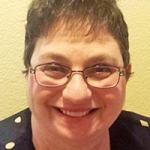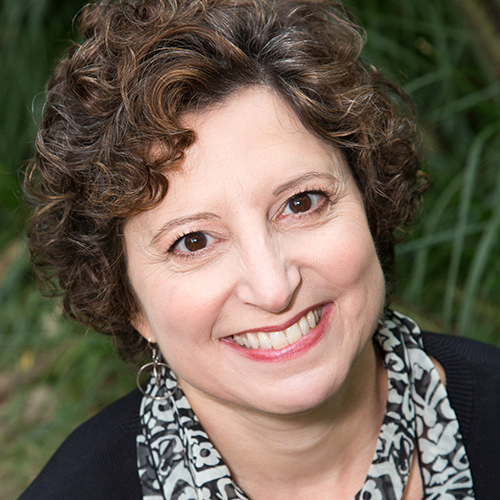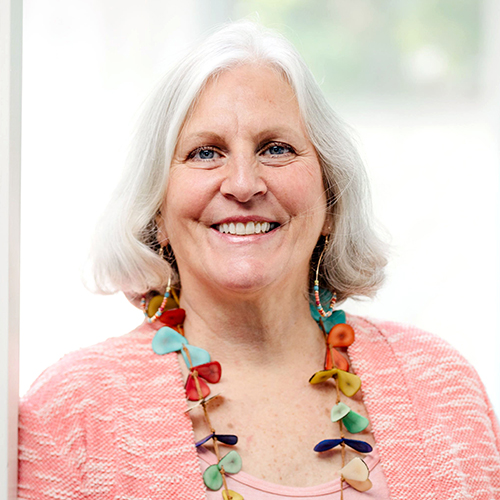 IBCLC Detailed Content Outline: Techniques Focused CERPs - Section VI
IBCLC Detailed Content Outline: Techniques Focused CERPs - Section VI
Access CERPs on Techniques for the IBCLC Detailed Content Outline recertification requirements. Enjoy convenient on-demand viewing of the latest Techniques focused IBCLC CERPs at your own pace.
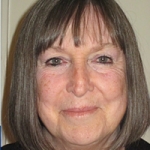

Pamela Morrison has worked with breastfeeding mothers and babies for 30 years. She served as a La Leche League Leader in Harare, Zimbabwe from 1987 before certifying as the first IBCLC in the country in 1990. She worked in private practice until 2003, before moving to Australia and then to England. She served for many years on the Zimbabwean National Breastfeeding Committee and on the BFHI Task Force. She has subsequently served as Co-coordinator of the WABA Task Forces on Infants Nutrition Rights and on Breastfeeding and HIV. Pamela continues to write and speak for the preservation and protection of breastfeeding in challenging situations.
In biological terms, successful breastfeeding demands that the baby survives and thrives on his mother’s milk. “Not-enough-milk” (either real or perceived) has long been recognized as the most common reason why mothers abandon breastfeeding. Ways to identify for the mother whether a baby is “getting enough” are discussed. The causes of inadequate breastmilk intake include physiological/anatomical conditions in mother/baby, poor lactation management or other more obscure causes. While planning interventions to enhance breastmilk production and improve infant intake, it is important to protect the baby’s nutritional status. Simultaneously implementing strategies to increase the mothers’ breastmilk supply while caring for a high-need baby can be immensely challenging. Each client will need constant support, reassurance and re-evaluation. Turning such a difficulty around, with the goal of eventually returning to exclusive breastfeeding, can be one of the most fulfilling and rewarding situations that an IBCLC can work with.

Neuromusculoskeletal Disorders in the Breastfed Baby: Causes, Assessment, & Treatment

Dr. Valérie Lavigne graduated from the Canadian Memorial Chiropractic College in 1998. In July 2005, she became an IBCLC, the first chiropractor in Quebec with the title. She has her fellowship in pediatrics from the International Chiropractic Pediatric Association and has graduated in November 2014 with a Master of Science in Pediatric Musculoskeletal Health from the Anglo-European Chiropractic College. She is working in private practice in her chiropractic clinic in Kirkland, Quebec.
How comfortable are you at identifying neuromusculoskeletal issues in babies. This lecture will explore the triad aspect of breastfeeding – neurological, muscular and skeletal. A review of the causes, main conditions combined with tips to help you recognize neuromusculoskeletal issues will provide you with a more astute eye during your evaluation. Treatment options will be reviewed in addition to a review of the chiropractic and lactation literature. This lecture should create awareness amongst health professionals about the importance of treating neuromusculoskeletal issues in baby to optimize breastfeeding!

View Details / Enroll


Catherine Watson Genna BS, IBCLC is an International Board Certified Lactation Consultant in private practice in New York City. Certified in 1992, Catherine is particularly interested in helping moms and babies breastfeed when they have medical challenges and is an active clinical mentor. She speaks to healthcare professionals around the world on assisting breastfeeding babies with anatomical, genetic or neurological problems. Her presentations and her writing are enriched by her clinical photographs and videos. Catherine collaborates with Columbia University and Tel Aviv University Departments of Biomedical Engineering on research projects investigating the biomechanics of the lactating nipple and various aspects of sucking and swallowing in breastfeeding infants. She is the author of Selecting and Using Breastfeeding Tools: Improving Care and Outcomes (Praeclarus Press 2009) and Supporting Sucking Skills in Breastfeeding Infants (Jones and Bartlett Learning 2008, 2013, 2017) as well as professional journal articles and chapters in the Core Curriculum for Lactation Consultant Practice and Breastfeeding and Human Lactation. Catherine served as Associate Editor of the United States Lactation Consultant Association’s official journal Clinical Lactation for its first seven years.
Topic: Breastfeeding Strategies for Tongue-tied Infants - [View Abstract]
Topic: Critical Assessment of Apparent Tongue-Tie - [View Abstract]
Topic: Introduction to Cervical Auscultation - [View Abstract]
Topic: Lactation Support for Infant Biomedical Challenges - [View Abstract]
Topic: Organization of tongue movements before and after frenotomy for posterior tongue-tie: an Ultrasound analysis - [View Abstract]
Topic: Positioning and Latch for Breastfeeding - [View Abstract]
Topic: Ultrasound Analysis of Sucking: Tongue-Tie and Confounders - [View Abstract]
Topic: Using Breastfeeding Supplementers - [View Abstract]
The comfort and effectiveness of breastfeeding depend largely on how deeply the baby is attached to the breast and how stable the body positions of mother and baby are. This presentation reviews infant requirements and capabilities for breastfeeding and best practices to facilitate optimal latch.

Preventing the Plunge: Why the First 2 Weeks are Crucial for Breastfeeding Duration.

Cindy Leclerc and Jana Stockham are Registered Nurses and IBCLCs with over 20 years experience helping families get started with breastfeeding. In addition to hands on care, Cindy and Jana use technology to support families through their website (cindyandjana.com), online prenatal breastfeeding classes (simplybreastfeeding.ca) and iPhone app, NuuNest. Cindy is a strong believer in mother-to-mother support, helping to facilitate breastfeeding and postpartum depression support groups. She is intrigued by all things online and actively uses social media to promote breastfeeding. Jana has been trained as a Baby Friendly assessor and helped to coordinate the first Baby Friendly designation in Saskatchewan. She has a passion to help families with new babies and facilitates a group for breastfeeding moms.
Topic: Meeting your breastfeeding goals - [View Abstract]
Topic: Preventing the Plunge: Why the First 2 Weeks are Crucial for Breastfeeding Duration. - [View Abstract]
The majority of women begin breastfeeding at birth. Within the first 6 weeks, however, breastfeeding rates fall dramatically. To help women hang in with breastfeeding beyond the first weeks, we must first understand why they struggle. Learn what the research is saying and what you can do in your practice to help women meet their breastfeeding goals. IBCLC’s who specialize in the early weeks of breastfeeding will share case examples based on over 20 years of working with breastfeeding families.

View Details / Enroll
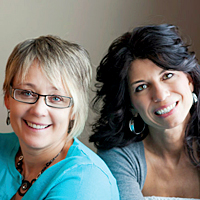
View Details / Enroll
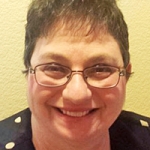

Debbie Albert, PhD, BSN, IBCLC, is a full time lactation consultant at UC Davis Med Center--working with all facets of their lactation service; including maternity floor, level IV NICU, pediatrics, PICU, and Employee Breastfeeding Support Program. She is also a prenatal instructor with their patient education program, nursing staff educator, and chairs the UCD Breastfeeding Task Force and the UCD Breastfeeding Support Program Committee. She received an Employee Excellence Award June, 2013 and June, 2015, and a Nursing Excellence Award in May, 2016. In addition, UC Davis programs have received IBCLC Lactation Care Awards and Sacramento Coalition and California State Coalition Breastfeeding Awards. Debbie has lactation experience in Florida, Texas, and California. She is Member of the LEAARC Board, a member of ILCA’s Equity Committee, and UCD Status of Women Committee. She is married to Dan Albert for 33 years, and has two sons, Josh (28), and David (24).
Raynauds is an illusive condition that tends to be confused with other conditions, misdiagnosed, and consequently rarely treated--causing the breastfeeding dyad to suffer. This program provides a review of the symptoms, medical and lactation resources, and clinical applications that facilitate most the effective treatment/comfort for the patient.

View Details / Enroll


Dr Nandiran Ratnavel has been a Consultant Neonatologist at The Royal London Hospital, Barts Health NHS Trust for 16 years. He is Director of The London Neonatal Transfer Service and Joint Clinical Lead for North East and Central London Neonatal Services. He serves as joint implementation lead for In Utero Transfer Services in London and has recently taken up a position as Neonatal Clinical Lead for the London Maternity and Neonatal Safety Improvement Programme. Finally he has a role as clinical reviewer for the Independent Maternity Services Oversight Panel for the Welsh Government.
Retrieval medicine is associated with certain hazards. These can affect the patient or staff. Avoidable adverse events often arise as a consequence of suboptimal communication, drug error, inadequate preparation or equipment failure. Applying the principles of risk management and clinical safety is essential. To understand issues associated with neonatal transport one needs to look at the infrastructure of transfer teams, arrangements for governance, risk identification, incident reporting, feedback and learning from experience. One also needs to look at audit processes, training, communication and ways of team working. Adherence to current recommendations for equipment and vehicle design are also vital. Benchmarking between services and sharing best practice with a view to optimising safety and reducing risk is recommended.


For over 25 years, Caroline has had the pleasure of advising new mothers, growing families, and breastfeeding babies. Along with being a certified lactation consultant in private practice, she leads a weekly parenting and breastfeeding support group for moms and their babies through six months of age. For nearly two decades at a community hospital, she taught prenatal breastfeeding classes. She works among a team of lactation consultants in a thriving postpartum unit. Caroline also practices as a nurse practitioner at a pediatrician’s office. As a provider, she enjoys integrating her knowledge and skills from pediatric nutrition and lactation into primary care. Currently working on a breastfeeding book for new moms, she remains passionate about using various means to teach breastfeeding and help families get off to a great start.
Out of desperation to improve the morbidity and mortality rates of premature infants in Bogota, Colombia, innovative neonatologists developed the concept of kangaroo care . Since then, it has been modified to skin to skin care in NICU’s across the world. In recent years, the benefits of this care have been demonstrated and extended toward use in the full-term infant. With a fresh perspective, application of principles from infant development, anatomy, and physiology, are integrated to realize advantages of incorporating skin to skin through 12 weeks of age. When done correctly, skin to skin time serves as tummy time, minimizes the incidence and severity of acquired plagiocephaly, and provides a gentle treatment for torticollis. Learn how to engage, educate, and empower new families to succeed with this breastfeeding friendly intervention.

View Details / Enroll
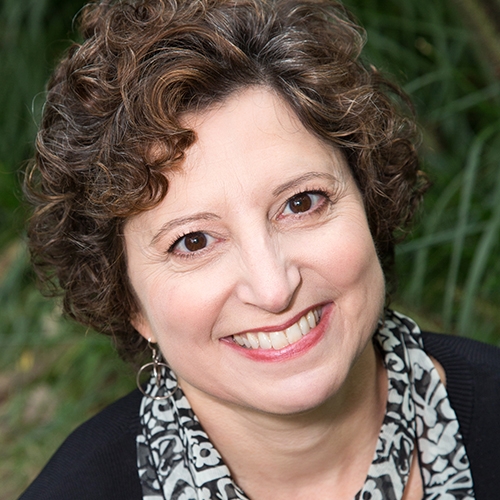

Alyssa has been helping parents and babies with breastfeeding since 2002, first as a La Leche League Leader and since 2009 as an International Board Certified Lactation Consultant.
Alyssa works in private practice serving clients worldwide, primarily through telehealth. She is the author of Breastfeeding Without Birthing: A Breastfeeding Guide for Mothers Through Adoption, Surrogacy, and Other Special Circumstances and a professional supplement to the book, The Breastfeeding Without Birthing Professional Pack online training.
Alyssa has authored articles for The Journal of Human Lactation: The Three Step Framework for Inducing Lactation and Successful Co-Lactation by a Queer Couple: A Case Study. She has also authored articles for La Leche League’s Leader Today and Breastfeeding Today magazines, and Adoptive Families magazine. She is an international speaker on the topics of inducing lactation, relactation, and other related topics. Alyssa is the proud mother of three breastfed children, two by birth and one by adoption. She lives in St. Louis, Missouri, USA.
Topic: Demystifying Inducing Lactation: How Lactation Happens Without Pregnancy and Birth - [View Abstract]
Topic: ReLATCHtation: Transitioning the Exclusively Bottle-fed Baby to Nursing - [View Abstract]
Topic: Supplementation: A Goldilocks Dilemma - [View Abstract]
Topic: The Proficient Pumper - [View Abstract]
Too much supplementation means baby is getting less of the parent’s own milk, and eventually, there is less milk production for the parent. Too little supplementation means baby is not fed enough. So how do we find that juuuuust right amount? Or determine whether supplementation is really necessary? When it is necessary, how do we supplement in a way that preserves long-term breastfeeding outcomes? This presentation can serve a guide for if, when, how and how much to supplement direct breastfeeding with additional human milk or infant formula.
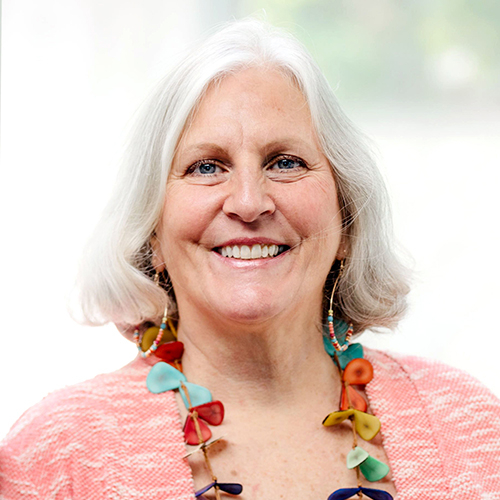
The Impact of Bodywork on Infant Breastfeeding

Dr. Hazelbaker has been a therapist in private practice for over 30 years. She specializes in cross-disciplinary treatment and to that end has taken training in several modalities to best assist her clients. She is a certified Craniosacral Therapist, a Lymph Drainage Therapy practitioner, a Tummy Time™ Trainer, a Haller Method practitioner, A Pre and Perinatal Psychology Educator, a Lactation Therapist Diplomate, an International Board Certified Lactation Consultant and a fellow of the International Lactation Consultant Association.
She earned her Master’s Degree from Pacific Oaks College (Human Development specializing in Human Lactation) and her doctorate from The Union Institute and University (Psychology, specializing in Energetic and Transformational healing.)
People recognize her as an expert on infant sucking issues caused by various structural problems like torticollis, plagiocephaly, brachycephaly and tissue shock-trauma. She invented the Hazelbaker™ FingerFeeder and the Infant Breastfeeding CranioSacral Protocol™ to assist in the resolution of this type of infant sucking dysfunction.
Topic: Cranial Nerves: A Critical Component of the Process of Breastfeeding - [View Abstract]
Topic: Creating Flow: Using Lymphatic Drainage Therapy for Breastfeeding Issues - [View Abstract]
Topic: Finger Feeding: What Do We Know? What Should We Know? - [View Abstract]
Topic: Gamechangers: New studies that will change the way we think about tongue-tie - [View Abstract]
Topic: Infant Trauma: Impact on Breastfeeding - [View Abstract]
Topic: The Faux Tie: When is a "Tongue-tie" NOT a Tongue-tie? - [View Abstract]
Topic: The Impact of Bodywork on Infant Breastfeeding - [View Abstract]
Topic: What Does Torticollis Have to do with Breastfeeding? - [View Abstract]
This session addresses the types of breastfeeding problems that respond to bodywork. Dr. Hazelbaker presents examples of structurally related sucking dysfunction that indicates the need for bodywork. She discusses the three major release areas that must be addressed to resolve the sucking issue.

View Details / Enroll

The Value of Prenatal Hand Expression of Colostrum

Naida Hawkins is a Registered Nurse and Lactation consultant in North Battleford, Saskatchewan. She is a passionate registered nurse who has cared for breastfeeding families for 14 years.
Almereau Prollius is an Obstetrician and Gynecologist in Saskatoon, SK. Together with Naida they have a special interest in strategies to promote successful breast feeding and are advocates of prenatal hand expression. They work as part of an interdisciplinary team supporting families to have an easier time starting and continuing breastfeeding.
More Milk Sooner is their program which supports and promotes hand expression in the antenatal and early postpartum period. Based out of Saskatoon and North Battleford in Saskatchewan, they hope to empower patients and care providers to increase successful breastfeeding. They are delighted to be sharing their journey with you. They are actively involved in research reviewing the outcomes of the implementation of the prenatal hand expression education strategy.
Exclusive breastfeeding for the first six months of life is currently recommended by numerous health authorities including the World Health Organization and UNICEF, and should be encouraged and supported prenatally, perinatally and postpartum. Despite these recommendations, the rate of sustained breastfeeding to six months of life remain low. Prenatal hand expression (PHE) is a method used to assist with colostrum collection beginning near term pregnancy. This technique is low-cost and easy to teach and learn. It has been shown to reduce problems with milk stasis, mastitis and breast engorgement by mobilizing colostrum and breastmilk. Learn more about how this technique can improve breastfeeding exclusivity and duration and how to implement it in your practice.

View Details / Enroll









